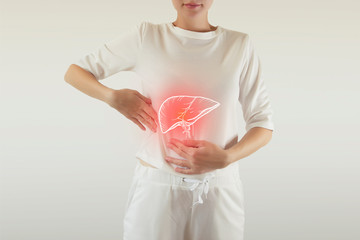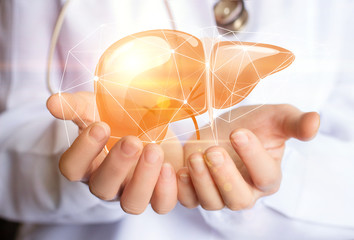
Learn about liver pain from drinking alcohol, including causes, symptoms, and treatment options. Discover how to protect your liver and seek timely medical care.
Introduction
Liver pain from drinking alcohol is a significant concern, with various underlying causes and implications for health. As alcohol consumption increases, the risk of experiencing liver pain also rises. Understanding the connection between alcohol intake and liver health is essential for prevention and management. This comprehensive guide will explore the causes, symptoms, and potential treatments for liver pain related to alcohol consumption.
The Anatomy of the Liver and Its Functions
To comprehend liver pain from drinking, it’s crucial first to understand the liver’s anatomy and functions. The liver, a vital organ located in the upper right abdomen, performs several critical functions, including detoxifying substances, producing bile for digestion, and metabolizing nutrients. Drinking alcohol can disrupt these functions, leading to pain and discomfort.
How Alcohol Affects the Liver
When alcohol is consumed, it is metabolized primarily by the liver. The liver breaks down alcohol into acetaldehyde, a toxic substance, which is further metabolized into acetate. Excessive alcohol intake overwhelms the liver’s ability to process these substances, leading to inflammation, fatty liver disease, and other complications. This disruption often results in liver pain.
Common Causes of Liver Pain from Drinking
Several conditions may cause liver pain from drinking. Chronic hepatitis, fatty liver disease, liver abscess, and liver cancer are among the primary culprits. Chronic hepatitis involves inflammation of the liver, often due to alcohol abuse, while fatty liver disease results from fat accumulation. Liver abscesses are localized infections, and liver cancer can cause significant pain, particularly in advanced stages.
Chronic Hepatitis and Its Relation to Alcohol
Chronic hepatitis is a common cause of liver pain, especially in individuals who consume alcohol excessively. This condition leads to prolonged inflammation of the liver, which can result in discomfort and pain. Alcohol aggravates chronic hepatitis by further inflaming the liver, making the condition more severe.
Fatty Liver Disease: The Impact of Alcohol
Fatty liver disease, also known as hepatic steatosis, is directly linked to alcohol consumption. Excessive drinking leads to fat buildup in liver cells, impairing liver function and causing pain. Fatty liver disease can progress to more severe conditions, such as non-alcoholic steatohepatitis (NASH), which further exacerbates liver pain.
Liver Abscess: A Serious Complication
A liver abscess is a localized collection of pus within the liver, often resulting from an infection. This condition can be particularly painful and is associated with severe symptoms, including fever and abdominal pain. Alcohol consumption can increase the risk of liver abscesses by weakening the liver’s immune response.
Liver Cancer and Alcohol Consumption
Liver cancer, or hepatocellular carcinoma, can cause significant liver pain, especially in the later stages. Chronic alcohol consumption is a known risk factor for liver cancer, as it can lead to cirrhosis and other liver diseases that increase cancer risk. Early detection and management are crucial for improving outcomes.

Symptoms of Liver Pain from Drinking
Liver pain from drinking often presents as a dull, aching sensation in the upper right abdomen. Other symptoms may include nausea, vomiting, fatigue, and jaundice (yellowing of the skin and eyes). These symptoms may vary in intensity depending on the severity of the underlying liver condition.
Diagnosing Liver Pain: Tests and Procedures
Accurate diagnosis of liver pain involves a combination of medical history, physical examination, and diagnostic tests. Blood tests, imaging studies (such as ultrasound or CT scans), and liver biopsies may be used to identify the underlying cause of the pain. These diagnostic tools help determine the appropriate treatment plan.
Treatment Options for Liver Pain from Drinking
Treating liver pain from drinking involves addressing both the pain and the underlying liver condition. Treatment may include lifestyle changes, such as reducing or eliminating alcohol consumption, medications to manage liver inflammation, and in severe cases, surgical interventions. Consultation with a healthcare provider is essential for developing a personalized treatment plan.
Lifestyle Changes to Prevent Liver Pain
Preventing liver pain from drinking involves adopting a healthy lifestyle. Reducing alcohol intake, maintaining a balanced diet, and exercising regularly can help protect the liver from damage. Additionally, avoiding other risk factors, such as obesity and certain medications, contributes to overall liver health.
The Role of Diet in Liver Health
A well-balanced diet plays a crucial role in maintaining liver health and preventing pain. Foods rich in antioxidants, such as fruits and vegetables, support liver function and reduce inflammation. Avoiding excessive consumption of fatty and processed foods also helps protect the liver from damage caused by alcohol.
Medications and Their Impact on the Liver
Certain medications can impact liver health, especially when combined with alcohol. Over-the-counter pain relievers, antibiotics, and other drugs may exacerbate liver pain and contribute to liver damage. It is essential to discuss any medication use with a healthcare provider to avoid potential interactions and side effects.
When to Seek Medical Attention
If liver pain from drinking persists or worsens, it is crucial to seek medical attention promptly. Symptoms such as severe abdominal pain, persistent jaundice, and unexplained weight loss may indicate a more serious underlying condition. Early intervention can prevent further liver damage and improve overall health outcomes.
The Importance of Regular Liver Check-Ups
Regular liver check-ups are essential for individuals who consume alcohol frequently or have a history of liver disease. Routine screenings help monitor liver function, detect early signs of liver damage, and provide timely treatment. Regular consultations with a healthcare provider are vital for maintaining liver health.
Coping with Chronic Liver Pain
Living with chronic liver pain can be challenging, both physically and emotionally. Support from healthcare providers, family, and support groups can help individuals manage their condition and improve their quality of life. Developing coping strategies and seeking emotional support are crucial aspects of managing chronic liver pain.
Alternative Therapies for Liver Health
In addition to conventional treatments, alternative therapies may provide relief for liver pain and support overall liver health. Herbal supplements, acupuncture, and lifestyle modifications can complement traditional treatments and enhance liver function. However, it is essential to consult with a healthcare provider before starting any alternative therapies.

Alcohol and Liver Disease Prevention
Preventing liver disease involves making informed choices about alcohol consumption and lifestyle. Educating oneself about the risks associated with excessive drinking and adopting healthy habits can significantly reduce the likelihood of developing liver-related complications. Prevention strategies are key to maintaining long-term liver health.
Support Resources for Individuals with Liver Conditions
Numerous resources are available to support individuals with liver conditions, including support groups, educational materials, and counseling services. These resources offer valuable information, emotional support, and practical advice for managing liver pain and improving overall well-being.
Conclusion
Understanding liver pain from drinking is crucial for maintaining liver health and preventing serious complications. By addressing the causes of liver pain, seeking timely medical care, and making positive lifestyle changes, individuals can protect their liver and enhance their overall health. Regular monitoring and proactive management are essential for long-term liver wellness.





